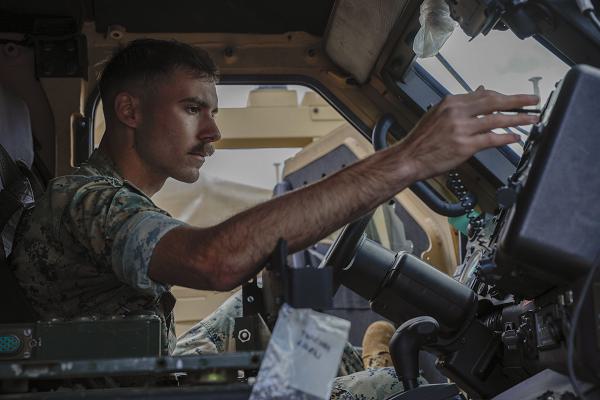
Camp Lejeune, North Carolina. (June 1, 2024): There is an old saying “Drivers may not be the pride of the ride, but without them, the pride don’t ride”. In this photo by Corporal Megan Ozaki, Marine Corporal Gage Barbieri with Headquarters Battalion, 2d Marine Division works on a Joint Light Tactical Vehicle. Officially called Motor Transport Operators, these dedicated professionals are responsible for maintaining and operating both commercial and tactical vehicles.
They operate wheeled vehicles of all kinds to transport cargo and troops over rough terrain in support of combat operations. They make sure all vehicles are inspected and maintained in top condition and ready to go into combat. Operators also oversee repair and maintenance of transport equipment including fuel and water tankers that are essential to support units in the field. They are also experts on the proper loading and unloading of cargo and convoy defense techniques. They also prepare vehicles for movement via air, rail, or sea.
To become a Motor Transport Operator, candidates must pass 10 weeks of Basic Combat Training followed by six weeks of Advanced Individual Training at Fort Leonard Wood, Missouri. The training is a mix of classroom work and simulators plus over two hundred hours spent in actual vehicles in field training environments. Training subjects include loading/unloading operations, vehicle-mounted navigation, and Global Positioning Satellite (GPS) systems, radio communications, convoy security and defense, and the safe transport of Hazardous Materials.
While not the flashiest of jobs in the military, Motor Transport Operators are the backbone of all logistics and combat missions.


